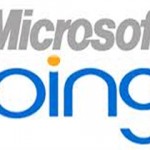 Tel Aviv — Chipmaker Intel Corp., which owns several facilities in Israel, is now further expanding its capabilities in both software and mobility, over the weekend at the AppUp Elements 2011 conference, announced the acquisition of Telmap Ltd., an Israeli location-based services company, for $300 million, the company said in a blog post.
Tel Aviv — Chipmaker Intel Corp., which owns several facilities in Israel, is now further expanding its capabilities in both software and mobility, over the weekend at the AppUp Elements 2011 conference, announced the acquisition of Telmap Ltd., an Israeli location-based services company, for $300 million, the company said in a blog post.
The announcement was made this week at the close of Intel AppUp Elements 2011 in Seattle, Intel’s annual developers conference intended at the AppUp app store community. In a blog post, AppUp general manager Peter Biddle said Telmap would become a wholly-owned Intel subsidiary, once the deal is finalized.
“This move is a step towards expanding our mobile software services capabilities as Intel continues to grow in the area of software and services,” Biddle wrote. “We are all very excited to have such knowledgeable and respected experts join the company.”
Precise details of the deal were not revealed but Israeli media said Intel is investing about $300 million.
Telmap, which extends a white-label, hosted and managed location-based services to mobile operators globally, the Israeli company said earlier this month. Its clients group includes Orange FT Group, Vodafone, Vodacom, SFR, O2, Telefonica, SingTel, Optus, Cellcom, and Pelephone. Telmap said in a Twitter message late Thursday that it has been acquired by Intel, and was joining the family.
Besides, Telmap, which delivers an assimilated, uniform experience across consumer devices, will soon become a wholly-owned subsidiary of Intel. It has the expertise around end-to-end mobile local search, mapping and navigation services, offering multi-platform consumer experiences, Biddle said.
The acquisition is part of Intel’s strategy to expand its mobile software and services portfolio in a significant and (most importantly) multi-platform way, where there would not be too much market consolidation on the consumer side, and the app developer side will be given a richer set of tools to work with.
For Intel AppUp developers, this means Telmap’s APIs for mapping, navigation, and location-based search, social, and advertising will soon be available for incorporation into their apps; and that the association of location into apps will require fewer layers of licensing.
Telmap is not just a great consumer service provider, “With Telmap, the chipmaker said it can directly provide developers with location-based services spanning devices, operating systems and CPU architectures. This is a meaningful step towards the Intel AppUp services vision we spoke about yesterday,” Biddle said.
In his post, Biddle described that Intel wanted to help build Telmap’s existing mobile local search, mapping and navigation businesses, but that it also wanted to use Telmap to “directly provide developers with location-based services spanning devices, operating systems and CPU architectures”.
“Telmap will empower us to provide AppUp developers with great, differentiated location capabilities in the form of a standard set of location-based APIs and software that developers can easily incorporate into their AppUp apps,” Biddle wrote, promising developers “new advanced capabilities with just a few lines of code”.
“The new cross-platform location capabilities will also empower developers to not just retain their users but delight them via in-app and in-experience location features that they just can not really do today,” he added.
AppUp commenced as a program to support developers create and distribute software for Netbooks, and though Intel has plans to expand it into a more cross-platform, behind the scenes kind of layer (they refer to its backend services as a “brokerage” for apps), it remains mostly the same as when it began, except instead of netbooks, they are now aiming at the super-thin and light “Ultrabook” form factor.
Herzliya-based Telmap has 210 employees and says it is profitable. It provides mapping, local business listings and other location-based services for applications. It primarily collaborates with wireless operators in Europe, and powers such applications as Orange Maps and Vodafone’s Find and Go. Roughly seven million subscribers use the company’s services globally.
Intel’s Biddle speaking to “All Things Digital” magazine mentioned that Intel would not be so bold to say that it is attempting to compete against the “galactically” big Google Maps or Bing Maps franchises. But he does see some wiggle room when it comes to working with third-party developers.
Officials at Telmap were not available to comment.
A spokesman for Intel in Israel declined to comment.
Intel, the world’s No. 1 chipmaker, has two plants and four development centers in Israel.


